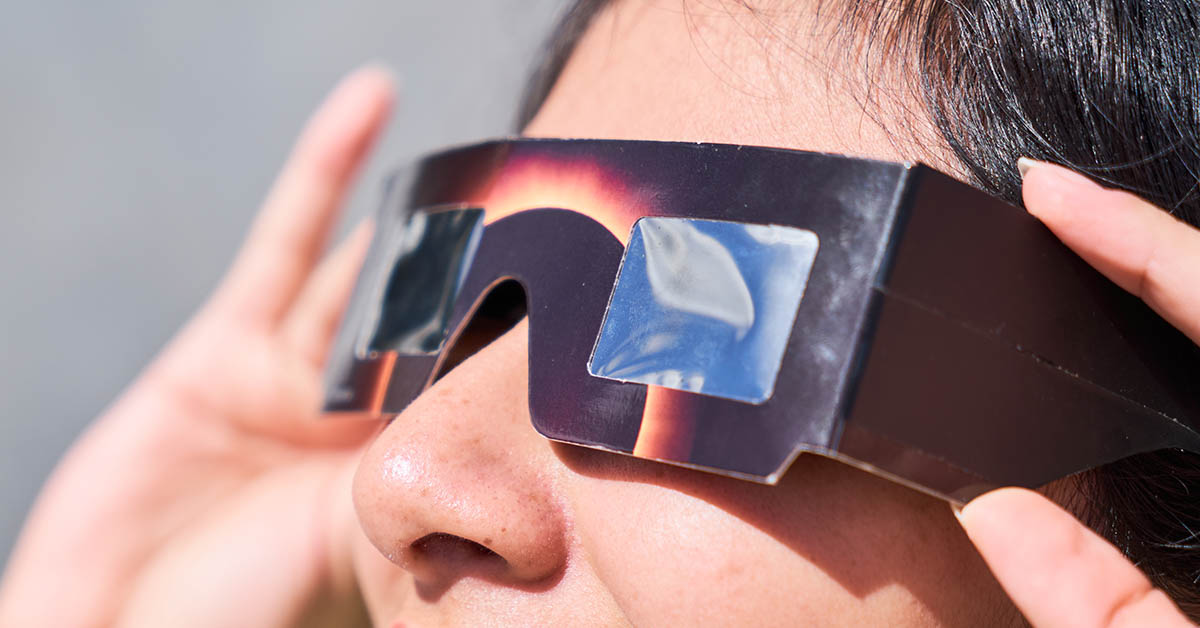When it comes to cautionary tales, Bridget Kyeremateng’s experience has one for the books. A mere 10-second glance at the 2017 solar eclipse left her with irreversible eye damage, including partial blindness in her left eye. This chilling narrative reminds us of the perils of underestimating the sun’s power and urges the importance of proper eye protection during major celestial events.1
How It All Happened
Kyeremateng’s story begins innocently enough, as she recounted her poor decision. “I couldn’t focus on the sun or the exact curvature of the moon. I thought I would close one of my eyes to get a better focus. I could barely see anything, but I stared at the sun for a good 10 to 15 seconds before my eyes were starting to not feel good, so I walked inside,” she recalled. Little did she know the grave consequences that awaited her the next day.
The morning after the eclipse, Kyeremateng awoke to realize she couldn’t read with her left eye. “I couldn’t see every other word because there was a blind spot right in the middle focus of my iris, so for every other word I was trying to read, it was pretty much invisible,” she lamented. The panic escalated as she struggled to tell shapes apart amongst a sea of white dots clouding her vision.
Fearing the worst, she sought immediate medical attention. While her retina was intact, the damage was undeniable – a distorted vision that plagued her with what her eye doctor termed “slow 20/20 vision.” The repercussions extended beyond visual impairment as well; Kyeremateng dealt with frequent headaches and migraines, along with an onset of astigmatism, further complicating her daily life.
What Has The Eclipse Taught Us?
Reflecting on her journey, Kyeremateng’s message is clear: “Don’t be like me.”2 In a poignant TikTok post, she tells her audience to heed her tale, and emphasized the irreversibility of her relaity. “I now have slow 20-20 vision because I stared at the solar eclipse without glasses for 10 seconds six-and-a-half years ago. So, don’t be like me,” she urged.
Experts echo Kyeremateng’s message and emphasized the need for proper eye protection during solar events. NASA warns against direct sun gazing without specialized equipment without an eclipse, never mind during one. Brief exposure in itself can result in severe eye injury, so just don’t look directly at the sun. This isn’t a difficult concept. This story should make clear the inadequacy of regular sunglasses and highlight how necessary certified eclipse glasses are for safeguarding against damaging our eyes and its debilitating consequences.
Kyeremateng’s failure should serve as a powerful testament to the enduring impact of a single moment’s folly, as well as the power of the sun. Please take heed to respect that power. As she navigates life with perpetual reminders of her inability to heed caution from professionals, her story should be a sobering reminder of how fragile our eyes are. With her now unwavering advocacy for eye safety, Kyeremateng tells others to learn from her misfortune, making sure no one else suffers the same fate.
Read More: Doomsday Clock Still 90 Seconds to Midnight in 2024 Update

